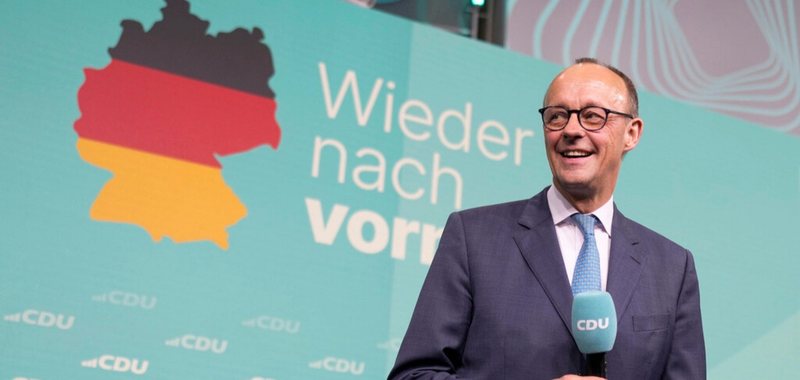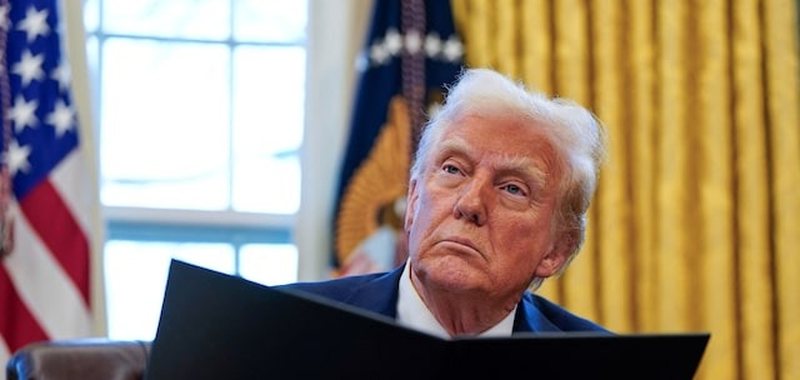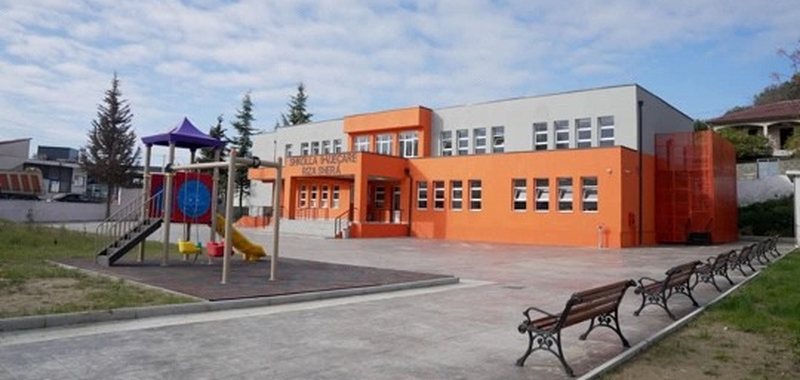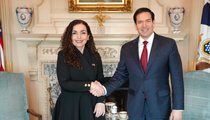Euro strengthens, driven by optimism over German election results!

Both the euro and German equity markets are likely to be buoyed by the outcome of Germany's snap election over the weekend. The euro climbed above 1.05, a two-month high, in Asian trading on Monday, while European stock markets are set to open higher according to futures. Markets expect the outcome to lead to a favorable party coalition that accelerates economic reform and brings about fundamental change in Europe's largest economy.
According to exit polls, the results predicted by broadcaster ARD are largely in line with expectations. The center-right Christian Democrats (CDU/CSU) won the most votes with 28.5%, followed by the far-right Alternative for Germany (AfD) with 20.7%.
Chancellor Olaf Scholz's Social Democratic Party (SPD) is in third place with 16.5%, its worst result since World War II, while the Greens are on 11.7%. The Free Democrats (FDP) and the Sahra Wagenknecht Alliance (BSW) won 4.4% and 4.9% of the vote respectively, putting them on the verge of crossing the 5% threshold required for parliamentary representation. The winning leader, Friedrich Merz, declared it was time for the parties to hold talks and form a new government by Easter, allowing the political groups two months for negotiations.
While the final outcome will depend on inter-party negotiations, one possible outcome is a coalition government formed by the CDU/CSU and SPD, which could be joined by a third party, the Greens. Such a formation is expected to pave the way for reforming Germany's "debt brake," a fiscal rule adopted in 2009 that limits government borrowing by capping the budget deficit at 0.35% of the country's gross domestic product (GDP).
"Such an outcome is the most market-positive of all possible coalitions and is likely to result in the formation of a government relatively quickly," Michael Brown, a senior research strategist at Pepperstone in London, wrote in a note, referring to a coalition between the CDU and SPD.
Germany's economy shrank for two straight years in 2024, struggling with rising energy prices due to Russia's invasion of Ukraine. Meanwhile, government spending cuts have led to shrinking investment and limited military expansion, leaving Europe's former economic powerhouse the bloc's laggard. The new government will also have to address U.S. President Donald Trump's tariff threats and his calls for Germany to increase defense spending.
However, uncertainties remain, as the two minority parties have yet to reach their final results, while the far-right AfD could oppose the fiscal reform. The new coalition needs to win two-thirds of parliamentary seats to secure a majority.
Both the euro and German stock markets are likely to see positive momentum in the short term amid election optimism, according to many analysts. The new government is expected to restart Germany's economy and attract more investment funds to the country. The euro reached 1.05 against the US dollar last week before the election. The common currency had fallen to just over 1.02 - its lowest since November 2022 - on February 3, when Donald Trump announced his first set of tariff plans, including 25% tariffs on Mexico and Canada and a 10% tax on Chinese goods.
Despite the lack of direct export costs for the European Union, these tariffs significantly affect European businesses, which are largely exposed to global trade. However, the euro has since strengthened, rising nearly 3% against the greenback, boosted by Trump's delay in implementing his tariff plans and a broad-based rally in European stock markets.
Germany's stock market benchmark, the DAX, lost momentum last week after rising 15% this year. The decline was triggered by Trump's announcement of tariff plans on automobiles, pharmaceuticals and computer chips.
A broad sell-off on Wall Street also weighed on European markets last Friday. Despite this, European stocks have outperformed their U.S. counterparts, with notable gains in the defense sector. Shares in Germany’s largest weapons maker, Rheinmetall, have risen 44% this year. Expectations of increased military spending by the new German government are likely to fuel further gains in the sector.

German elections: CDU claims official victory as smaller parties miss threshold!
Germany's Christian Democratic Union (CDU) and its leader Friedrich Merz came first in Sunday's elections with 28% of the vote. The far-right Alternative......

How has this week started for foreign currencies?
The US dollar was bought this Monday at 93.8 lek and sold at 95 lek, losing points from the previous week according to the local exchange rate. The European......

One month of US-EU relations - Donald Trump's return shook the transatlantic partnership
A month after Donald Trump returned to the White House, relations between the United States and the European Union are becoming increasingly tense. Trade has......

250 million lek for compensation for damages from accidents - AFSA approves the decision for 2025. Will it be sufficient?
The Financial Supervisory Authority has approved the compensation fund for damages in the transport sector for 2025, which will amount to 250 million lek.......

The 9-year school "Riza Shera" in Manëz, another school in Durrës that has reopened its doors thanks to the intervention of "EU4Schools"
Through a social media post, the United Nations Development Programme - UNDP in Albania announces that students at the 9-year "Riza Shera" school in Manëz,......

More clothes and food were ordered - Online purchases, far from the European average. Lahi: Cause of informality
Orders for clothing and shoes lead, followed by those for food in restaurants and fast food, and then cosmetic products. According to INSTAT data, 42.4% of......

"EU, more gas from the US" - Energy Commissioner announces plans to replace Russian supplies
The European Union will seek more gas from other countries, including the United States, to replace Russian supplies. The bloc also wants to expand renewable......

Albanians, more medicines and vitamins! - Nutritionist: The reason is the aging population and increased health care
The aging of the population, confirmed by the latest Census, as well as the growing fear of increasing diseases, are increasingly turning citizens' attention......


















